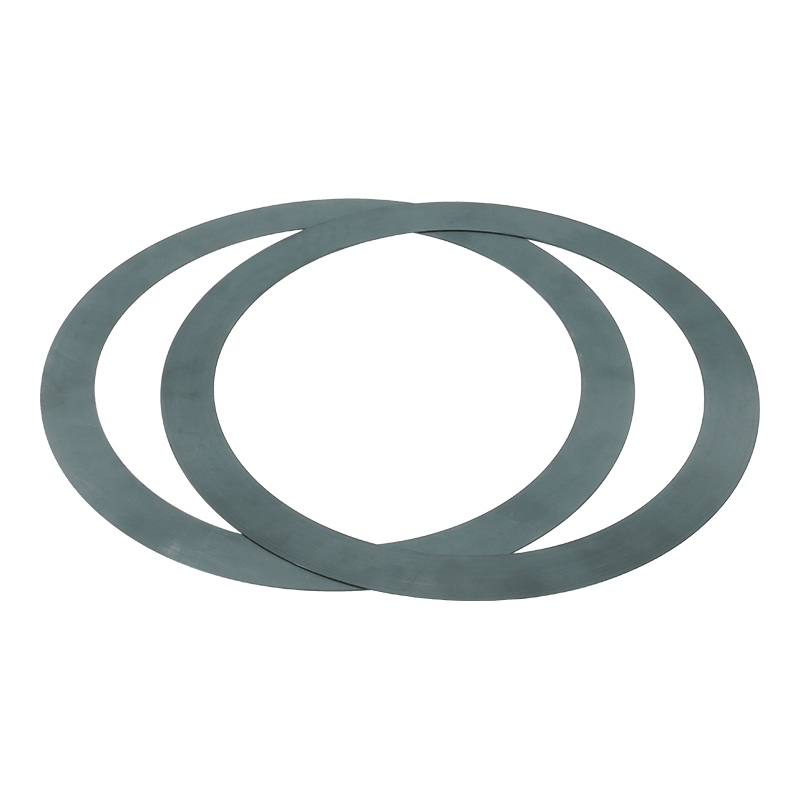The load carrying capacity and rigidity of Carbon Fiber Self-Lubricating Bearings are significantly different in many aspects from traditional materials (such as steel, copper, aluminum and other metal bearings, and other composite materials).
Carbon fiber self-lubricating bearings have a high load carrying capacity, especially under high temperature and non-lubricated conditions. Carbon fiber itself has extremely high strength, far exceeding many traditional materials. Its composite structure combines the strength of fiber with the toughness of resin, allowing the bearing to evenly distribute load and operate stably under high loads.Because carbon fiber composite materials have good fatigue resistance properties, they can still maintain high performance under long-term load and avoid local deformation or damage.
Steel bearings have a strong load carrying capacity, especially at low temperatures. Steels with high hardness perform well under static loads, but are prone to fatigue under dynamic loads, frequently changing loads or high speed rotation, especially when lubrication conditions are not ideal, which can lead to rapid wear. Although aluminum bearings are lightweight, they have a lower load-carrying capacity and are generally suitable for low-load and light-load applications.Copper bearings perform well under lubricated conditions, but they are prone to wear or plastic deformation under high loads.
Carbon fiber has extremely high stiffness, and carbon fiber self-lubricating bearings do not deform significantly under load, which makes them particularly important in high-precision applications. When used for a long time, carbon fiber bearings can maintain dimensional stability and avoid deformation that affects operating accuracy.The thermal expansion coefficient of carbon fiber is extremely low, which can maintain rigidity in environments with high temperatures or large temperature changes, and avoid changes in bearing dimensions due to thermal expansion and contraction, which is crucial for applications that require high rigidity and precise positioning.
Although steel bearings have high rigidity, their thermal expansion is large under extreme temperature changes, which will affect the size and rigidity. Especially under high temperature conditions, the rigidity of steel bearings may decrease.Aluminum bearings are less rigid and are more prone to deformation or bending than carbon fiber, especially under high loads. Aluminum has a large thermal expansion, so its rigidity will decrease significantly in environments with large temperature changes.Copper is also not as rigid as carbon fiber and is easily affected by temperature, performing worse in high-temperature environments.

Carbon fiber self-lubricating bearings generally have greater load carrying capacity and stiffness than other composite materials, especially at high temperatures and in non-lubricated environments. The fatigue resistance and strength of carbon fiber bearings are superior to many other composite materials.
Glass fiber bearings have weaker load carrying capacity than carbon fiber bearings. Although glass fiber also has high strength, its performance is usually lower than carbon fiber, especially under high load or complex working environment.Although the rigidity of glass fiber bearings is high, because glass fiber is not as rigid as carbon fiber, carbon fiber bearings have obvious advantages in applications requiring high precision.
The load carrying capacity of plastic composite bearings is much lower than that of carbon fiber bearings and is generally suitable for light load and low friction environments. Plastic bearings are prone to deformation or damage under high loads.Plastic bearings usually have low rigidity and are prone to plastic deformation under load, especially under long-term or extreme loads. Compared with carbon fiber self-lubricating bearings, the rigidity and load-bearing capacity are significantly different.
Carbon Fiber Self-Lubricating Bearings offer superior load carrying capacity and stiffness compared to traditional materials, especially metal bearings and other composite materials. Carbon fiber bearings have high fatigue resistance, high temperature resistance and low thermal expansion coefficient, and can maintain high load bearing and rigidity under complex working conditions. However, traditional metal material and composite material bearings are insufficient in these aspects. Carbon fiber self-lubricating bearings are ideal for high-end applications and extreme environments, especially suitable for long-term high loads, extreme temperatures and non-lubricated working conditions.

 English
English Deutsch
Deutsch Español
Español русский
русский

 +0086-513-88690066
+0086-513-88690066




